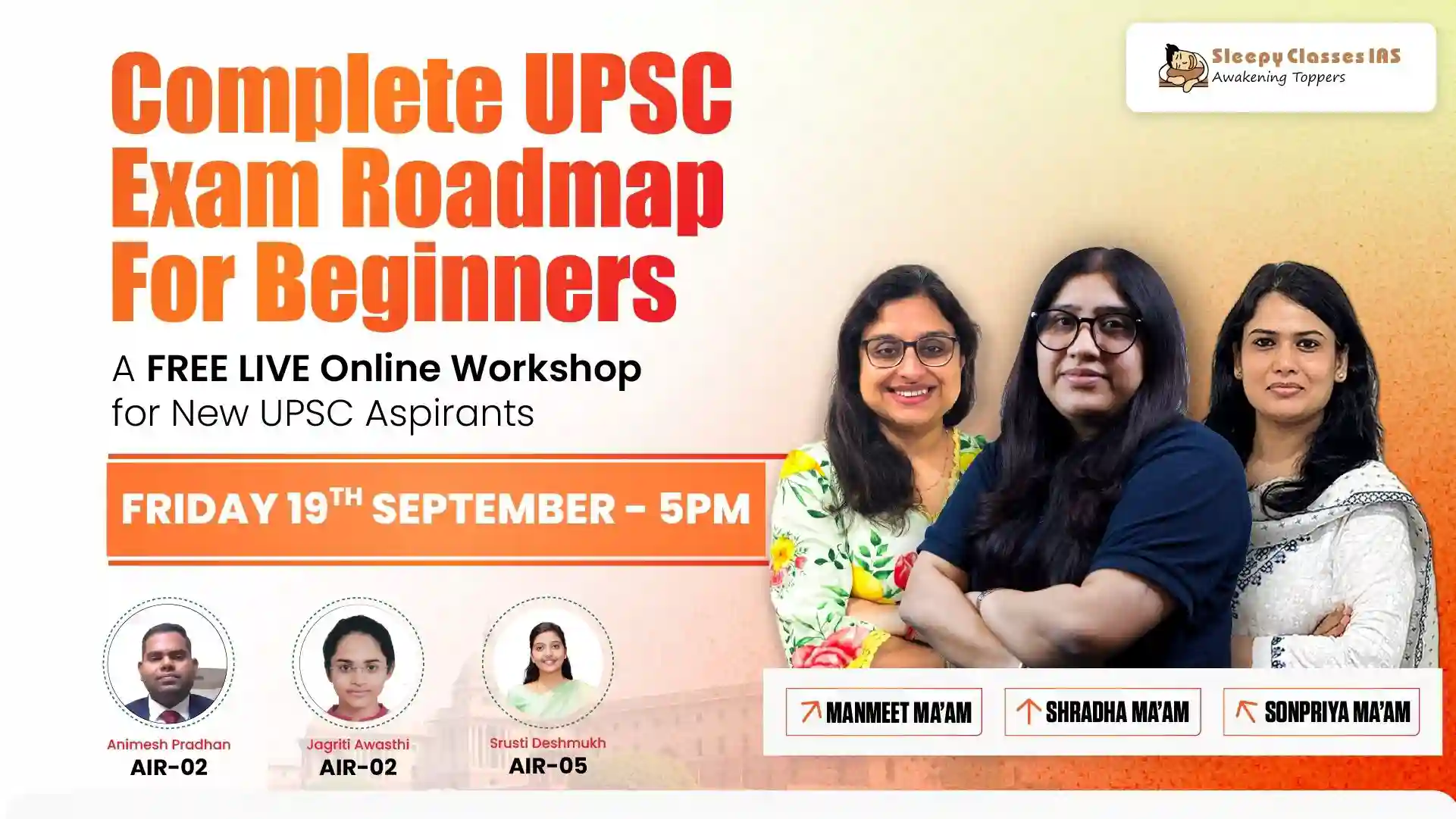The journey to cracking the UPSC exam is undoubtedly challenging, but with the right habits and strategies, success is within reach. Many successful UPSC aspirants have shared common practices that have significantly contributed to their achievements. In this article, we will delve into the top 10 habits that can pave the way for surefire success in your UPSC preparation. Incorporating these habits into your daily routine can make a substantial difference in your performance and confidence levels. Additionally, consider joining Sleepy Classes to enhance your preparation with expert guidance and a structured study plan.
Key Takeaways
- Consistency in your study schedule is crucial for long-term retention and understanding.
- Effective time management allows you to cover the vast UPSC syllabus efficiently.
- Regular revision helps in reinforcing your knowledge and identifying weak areas.
- Practicing with mock tests and previous years’ papers is essential for exam readiness.
- Staying updated with current affairs enriches your answers and demonstrates awareness.
1. Consistent Study Schedule
A consistent study schedule is the backbone of any successful UPSC preparation. Creating a daily time schedule helps in managing your time effectively and ensures that you cover all the necessary topics. This schedule should include dedicated time for studying, rest, and recreational activities to maintain a balanced lifestyle. An effective and focused study of 10-12 hours will be more than sufficient to prepare for UPSC CSE 2025. It’s crucial to stick to your schedule and make adjustments as needed to stay on track.
2. Effective Time Management
Effective time management is crucial for UPSC aspirants. Discipline and time management are essential for success in UPSC exams. Aspirants must cultivate disciplined study habits and employ effective strategies to make the most of their time.
- Create a Daily Schedule: Outline your study hours, rest periods, and time for other activities. This helps in maintaining a balanced routine and ensures that you cover all subjects systematically.
- Prioritize Tasks: Identify the most important tasks and tackle them first. This ensures that you are always working on high-priority areas and not wasting time on less critical tasks.
- Avoid Multitasking: Focus on one task at a time to improve efficiency and understanding. Multitasking can lead to errors and reduced productivity.
- Use Time Management Tools: Utilize planners, calendars, and apps to keep track of your study schedule and deadlines. These tools can help you stay organized and on track.
- Take Regular Breaks: Short breaks during study sessions can help maintain focus and prevent burnout. Use these breaks to relax and recharge.
- Set Realistic Goals: Break down your study plan into achievable goals. This makes it easier to track progress and stay motivated.
Remember, effective time management is not just about studying hard but also about studying smart. By managing your time well, you can ensure a more productive and less stressful preparation period.
3. Regular Revision
Regular revision is crucial for retaining information and ensuring that you are well-prepared for the UPSC exam. Consistent revision helps in reinforcing what you have learned and identifying areas that need more focus. Here are some effective strategies for regular revision:
- Organize your study material: Keep your notes, books, and other study resources well-organized. This will make it easier to find and review information quickly.
- Create a revision schedule: Plan your revision sessions in advance and stick to the schedule. Regularly update your notes to include new information and insights.
- Practice with mock tests: Taking mock tests regularly will help you gauge your preparation level and identify weak areas that need improvement.
Regular revision is not just about going over your notes; it’s about actively engaging with the material to ensure a deep understanding and long-term retention.
4. Mock Tests and Practice Papers
Mock tests and practice papers are essential tools for any serious UPSC aspirant. They help you gauge your preparation level and identify areas that need improvement. Regularly taking these tests can significantly enhance your time management skills and boost your confidence. Moreover, they familiarize you with the exam pattern and the types of questions you can expect.
- **Benefits of Mock Tests: **
- Assess your strengths and weaknesses
- Improve speed and accuracy
- Build exam temperament
- Familiarize with the exam format
- **How to Utilize Practice Papers Effectively: **
- Simulate exam conditions while taking the test
- Analyze your performance thoroughly
- Focus on weak areas and revise accordingly
- Repeat the process regularly for continuous improvement
Participating in an all India free mock test UPSC prelims 2024 can provide a realistic benchmark of your preparation against other aspirants.
Incorporating mock tests and practice papers into your study routine is a proven strategy to excel in the UPSC exams.
5. Staying Updated with Current Affairs
Staying updated with current affairs is crucial for any UPSC aspirant. Current events play a significant role in both the Prelims and Mains exams, making it essential to be well-informed about the latest happenings. Here are some effective ways to stay updated:
- Daily News Reading: Make it a habit to read newspapers like The Hindu, Indian Express, or any other reputable source. Focus on important news and events related to politics, economics, and international relations.
- Monthly Magazines: Subscribe to monthly magazines such as Yojana, Kurukshetra, and EPW. These provide in-depth analysis and are particularly useful for Mains preparation.
- Online Resources: Utilize online platforms and apps that offer daily current affairs updates. Websites like PIB, Rajya Sabha TV, and various UPSC preparation portals can be very helpful.
- Notes Making: Regularly make notes of important events and issues. This will help in quick revision and better retention of information.
- Discussion Groups: Join study groups or online forums where current affairs are discussed. This can provide different perspectives and enhance your understanding.
Staying updated with current affairs not only helps in the exams but also in developing a well-rounded understanding of the world. It is an indispensable part of the UPSC preparation journey.
6. Focus on NCERT Books
NCERT (National Council of Educational Research and Training) books are considered essential resources for UPSC (Union Public Service Commission) exam preparation. These books provide a strong foundation in various subjects, making them indispensable for aspirants. NCERT books cover fundamental concepts in a clear and concise manner, which is crucial for building a solid understanding of the topics.
Aspirants should start their preparation by thoroughly reading NCERT books from classes 6 to 12. This will help them grasp the basic concepts before moving on to more advanced study materials. Additionally, NCERT books are known for their authenticity and reliability, ensuring that the information is accurate and up-to-date.
Consistently revisiting NCERT books can significantly enhance your conceptual clarity and retention, which are vital for cracking the UPSC exam.
7. Answer Writing Practice
Answer writing practice is a crucial habit for UPSC aspirants. Regular practice helps in structuring your thoughts and presenting them clearly. It is essential to attempt mains practice questions regularly to get a feel of the actual exam scenario. This not only improves your writing speed but also enhances your ability to frame answers effectively.
To excel in answer writing, follow these steps:
- Understand the Question: Read the question carefully to grasp what is being asked. Identify keywords and directive words like ‘discuss,’ ‘analyze,’ or ‘critically evaluate.’
- Plan Your Answer: Before writing, outline your answer. This helps in organizing your thoughts and ensures that you cover all aspects of the question.
- Write Clearly and Concisely: Use simple language and avoid unnecessary jargon. Ensure that your answer is to the point and well-structured.
- Practice Regularly: Make it a habit to write at least one answer daily. This will help you get comfortable with the format and improve your writing skills over time.
- Seek Feedback: Get your answers evaluated by mentors or peers. Constructive feedback is vital for improvement.
Consistent answer writing practice can significantly boost your confidence and performance in the mains exam. It helps in mastering the art of writing perfect answers, which is crucial for scoring high marks.
8. Joining a Study Group
Joining a study group can be a game-changer for UPSC aspirants. Being part of a community of like-minded individuals can provide the motivation and support needed to stay on track. Group studies and discussions with peers can enhance your learning experience by exposing you to different perspectives and study techniques. This collaborative environment can help clarify doubts and reinforce your understanding of complex topics.
Key Benefits of Joining a Study Group
- Enhanced Learning: Engaging in group discussions can deepen your understanding of various subjects.
- Motivation and Support: Being surrounded by peers who share the same goals can keep you motivated.
- Resource Sharing: Study groups often share valuable resources, notes, and study materials.
- Accountability: Regular meetings can help you stay accountable and maintain a consistent study schedule.
Joining a UPSC coaching center means you are part of a community of like-minded aspirants. Group studies and discussions with peers can enhance your learning experience.
9. Seeking Guidance from Mentors
One of the most crucial habits for UPSC aspirants is to seek guidance from mentors. Mentors can provide invaluable insights and strategies that are often not found in books or online resources. They can help you understand the nuances of the exam, offer personalized advice, and keep you motivated throughout your preparation journey. It’s essential to confess your shortcomings to get the needed help and create a plan to stay focused and organized. Mentors, including previous UPSC toppers or experienced aspirants, can share their experiences and tips, which can prove to be a game-changer in your preparation.
- Why Seek Guidance?
- Personalized advice tailored to your strengths and weaknesses.
- Insights into effective study techniques and time management.
- Motivation and emotional support during challenging times.
- How to Find a Mentor?
- Join online forums and study groups where experienced aspirants and toppers participate.
- Attend UPSC seminars and workshops to connect with potential mentors.
- Utilize social media platforms to reach out to previous toppers and experts.
Remember, seeking guidance is not a sign of weakness but a step towards growth. Don’t just follow what’s popular; investigate to find the best information and maintain balance in your preparation.
10. Maintaining Physical and Mental Health
Maintaining both physical and mental health is crucial for UPSC aspirants. Managing stress is critical during UPSC preparation. Engaging in regular physical exercise, practicing meditation, and maintaining a balanced diet are effective strategies to keep stress at bay. Here are some key practices to consider:
- Regular Exercise: Incorporate activities like jogging, yoga, or even a brisk walk to keep your body active and mind fresh.
- Balanced Diet: Ensure your diet includes a variety of nutrients to keep your energy levels stable and your mind sharp.
- Adequate Sleep: Aim for 7-8 hours of sleep each night to help your body recover and your mind stay focused.
- Meditation and Mindfulness: Practicing meditation can help in reducing anxiety and improving concentration.
Remember, a healthy body fosters a healthy mind, which is essential for the rigorous demands of UPSC preparation.
Maintaining physical and mental health is crucial for achieving your goals, especially when preparing for competitive exams like the UPSC. At Sleepy Classes, we offer comprehensive resources and expert guidance to help you stay balanced and focused. Visit our website to explore our courses and start your journey towards success today!
Conclusion
Adopting the right habits can significantly enhance your chances of success in the UPSC examination. From maintaining a disciplined study schedule to staying updated with current affairs, these habits form the bedrock of a successful preparation strategy. Remember, consistency and perseverance are key. For those looking to further refine their approach, consider joining Sleepy Classes. Our comprehensive programs are designed to build confidence, improve answer quality, and provide strategic preparation tailored to the UPSC syllabus. With expert mentors and a supportive community, Sleepy Classes can be your partner in achieving your UPSC dreams.
Frequently Asked Questions
What is the importance of a consistent study schedule for UPSC preparation?
A consistent study schedule helps in maintaining discipline, ensuring regular study hours, and covering the vast UPSC syllabus effectively. It also aids in better retention and understanding of topics.
How can I effectively manage my time while preparing for the UPSC exam?
Effective time management can be achieved by creating a realistic timetable, prioritizing important topics, taking regular breaks, and avoiding procrastination. Using tools like planners and setting daily goals can also be beneficial.
Why is regular revision crucial for UPSC aspirants?
Regular revision helps in reinforcing the learned material, making it easier to recall during the exam. It also aids in identifying weak areas that need more focus and ensures that the vast syllabus is thoroughly covered.
How do mock tests and practice papers benefit UPSC aspirants?
Mock tests and practice papers simulate the actual exam environment, helping aspirants manage time better and reduce exam anxiety. They also provide insights into the exam pattern, question types, and help in self-assessment.
What is the role of current affairs in UPSC preparation?
Staying updated with current affairs is crucial as it forms a significant part of the UPSC syllabus, especially in General Studies papers. It helps in answering questions related to recent events and enhances the quality of answers by providing contemporary examples.
How can Sleepy Classes help in my UPSC preparation?
Sleepy Classes offers a comprehensive program that includes expert guidance, well-structured study materials, regular mock tests, and current affairs updates. Their experienced faculty and strategic preparation methods can significantly boost your confidence and performance in the UPSC exam.






